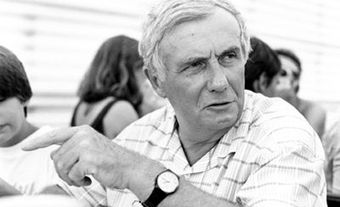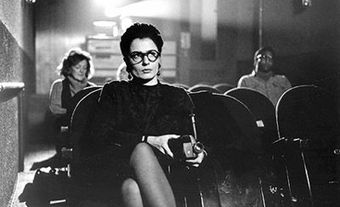Holly Dale
Holly Dale, director, producer, editor, writer (born at Toronto 23 Dec 1953). Holly Dale was born into a working-class family in Parkdale, in the west end of Toronto. Domestic tensions in a broken family caused her to leave home at the age of 15, and she ended up on the Yonge Street strip working in the body-rub parlours that dotted the street in the early 1970s. A chance meeting led her to enrol in the film program at Sheridan College in Oakville, Ont, in 1975. There she met her personal and professional filmmaking partner, Janis Cole (b at Chatham, Ont 1954).
Over the next 20 years, the pair collaborated on a series of provocative documentary shorts and features, sharing all the different functions involved. They broke all the accepted rules of the industry, working independently and on very tight budgets. Their films focused on the human side of social deviance from a feminist point of view. Cream Soda, their first student short in 1975, was about what they knew, the body-rub parlour business in Toronto. Their next short, Minimum Charge No Cover (1976), depicted marginal characters - transvestites, drug addicts, runaways and prostitutes - who inhabited the Yonge Street strip. A third short, Thin Line, made in 1977, was about the women locked up in Penetanguishene's hospital for the criminally insane. It was this film that gave Dale and Cole material for their first feature documentary.
P4W: Prison for Women (1981) is a GENIE AWARD-winning study of Canada's only maximum security prison for women (now closed). It took Dale and Cole 4 years to convince authorities that their documentary would not be exploitive and to get permission for their all-woman camera crew to film inside the prison, located just outside of Kingston, Ont. It is a remarkable, compassionate look at a closed society of women, and P4W is considered one of the finest documentaries in the Canadian canon.
Hookers on Davie, a feminist take on the sex-trade business in Vancouver, followed in 1984. The film is an extraordinary excursion into the backstreet world of the women, men, transvestites and transsexuals who ply their trade along Vancouver's notorious Davie Street. It features powerful monologues and cinéma-vérité scenes filmed at night with hidden cameras and radio mikes. It won the Gold Plaque at the Chicago International Film Festival and was nominated for another Genie Award. Calling the Shots, a feature-length documentary about women filmmakers in the 1980s surviving in a male-dominated business, came in 1989 and was also nominated for a Genie Award for best feature documentary.
Holly Dale enrolled in Norman JEWISON's newly opened CANADIAN FILM CENTRE (CFC) in the early 1990s and made the short Dead Meat, which led her to direct her first dramatic feature, Blood & Donuts (1995), under the auspices of the CFC's Canadian Film Project. Dangerous Offender: The Marlene Moore Story (1996; 7 GEMINI AWARD nominations, including best picture, direction and writing in a dramatic program) is a docudrama starring Robert JOY and Jayne EASTWOOD, about the first woman to be designated the "most dangerous woman in Canada." It was written by Cole and directed by Dale for the CBC. Holly Dale has received 2 DGC Awards from the Directors Guild of Canada and in 1994 Cole and Dale were given the Toronto Arts Award for Achievement in the Media.
Holly Dale has directed for episodic television on a number of Canadian-made series, including Bliss (Gemini Award nomination for best direction in a dramatic series), Sue Thomas: F.B. Eye, Just Cause, Twice in a Lifetime, A Nero Wolfe Mystery, The Collector, Flashpoint, Durham County (2008 Gemini for best direction in a dramatic series), Cold Case and Being Erica.

 Share on Facebook
Share on Facebook Share on X
Share on X Share by Email
Share by Email Share on Google Classroom
Share on Google Classroom


